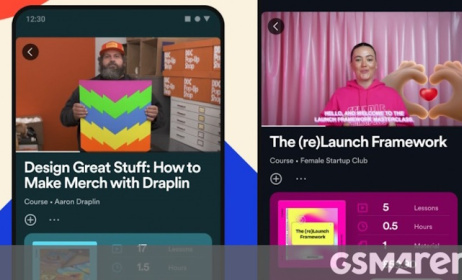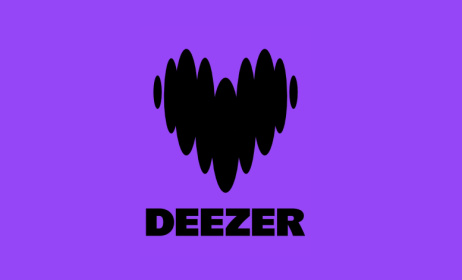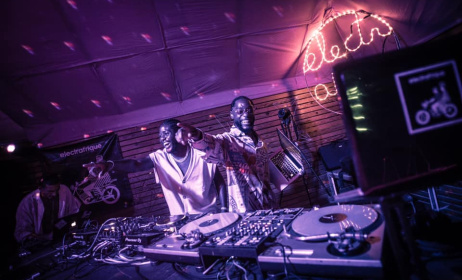AI audio startup Bronze secures $1.3m pre-seed funding
UK-based audio tech startup Bronze has raised $1.3m in a pre-seed round after receiving investment funding from Disclosure, Arca, Jimmy Napes, DAO Jones, Method Music and September Management.
 Disclosure. Photo: Rafski-Wojnowski
Disclosure. Photo: Rafski-Wojnowski
The company, founded by record producer Lex Dromgoole and composer Gwilym Gold, says it will launch this year the beta version of its AI music creation tool, which already has more than a thousand artists on the waiting list.
According to its founders, Bronze specialises in a range of adaptive AI-based technologies with “transformational sound format that is already being licensed by platforms to produce experiences beyond traditional recordings.”
Bronze announced its latest project in December, a collaboration with electronic duo Disclosure through a partnership with Beatport. It has also collaborated with XL Recordings, Oscar-winning sound designer Nicolas Becker and musicians Arca and Jai Paul.
The founders say what sets Bronze apart from other platforms in the AI space is its “training in context.” “Many companies are currently training models on unlicensed music – instead, we are developing intuitive and code-free ways for creators to train on their IP to produce personalised, contextually aware models that are unique to them,” Dromgoole said.
Bronze was first released as an app that reinterpreted a song in real time – Gwilym Gold’s 2011 single ‘Flesh Freeze’. The app manipulates “all aspects of the sound, from the rhythms to the texture and structure and generates a unique version on each and every listen.”
Using Bronze’s technology, Disclosure created a model of their recent single ‘Simply Won’t Do’, allowing them to capture 1 000 unique versions of the track instantaneously. These are being released exclusively on Beatport in 1 000 unique digital editions, each with an accompanying generative artwork.
The company added that its “audio engine is already being licensed by platforms to produce experiences beyond traditional recordings that are ‘better suited’ to new and emerging environments such as gaming, AR, VR and more.”
“We are developing intuitive and code-free ways for creators to train on their own IP to produce personalised, contextually aware models that are unique to them,” Bronze said.
With interest in generative AI and VR, and advancements in live-music technology, many music tech startups in the field are attracting interest from investors within and outside the creative industry. Some of the startups that received seed funding last year to grow their operations include AI technology company Hook, which raised $3m on 12 October. Another is chordCashAI, an AI-driven royalty prediction platform for effective music advance estimation and recoupment tracking, which entered into a partnership with VerseOne Distribution in November.
In October, Riffusion, a music-generating app using audio images, also closed a $4m seed round led by Greycroft with participation from South Park Commons and Sky9.
Meanwhile, global music industry insiders and stakeholders in the creative sector have lauded a new bill in the US House of Representatives that aims to protect people from having their image and voice used in AI-generated deepfakes.
Named the No Artificial Intelligence Fake Replicas and Unauthorised Duplications (No AI FRAUD) Act, the bill was brought forward on 10 January by a bipartisan group of House representatives led by Democrat Rep Madeleine Dean of Pennsylvania and Republican Rep Maria Salazar of Florida.
According to a statement from Dean, the No AI FRAUD Act establishes “an intellectual property right that every individual holds over their own likeness and voice, allows individuals to seek monetary damages for harmful, unauthorised uses of their likeness or voice and guards against sexually exploitative deepfakes and child sexual abuse material.”
“From an AI-generated Drake/The Weeknd duet, to Johnny Cash singing ‘Barbie Girl’, to ‘new’ songs by Bad Bunny that he never recorded, to a false dental plan endorsement featuring Tom Hanks, unscrupulous businesses and individuals are hijacking professionals’ voices and images, undermining the legitimate works and aspirations of essential contributors to American culture and commerce,” the Congress fact sheet states.
The proposed legislation has garnered the approval of a number of prominent voices in the music industry, including Recording Industry Association of America chairman and CEO Mitch Glazier and Universal Music Group chairman and CEO Sir Lucian Grainge.



























Commentaires
s'identifier or register to post comments